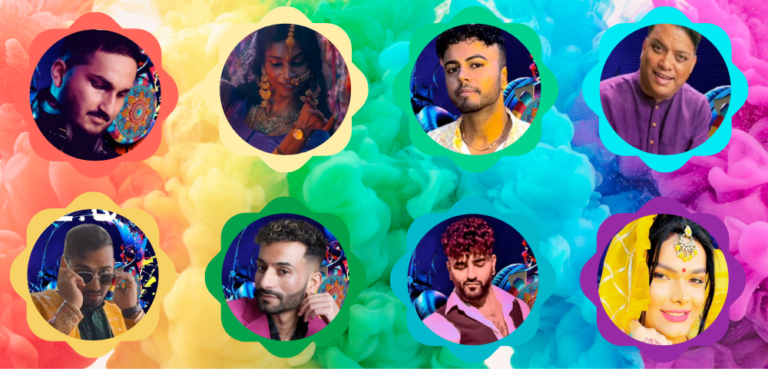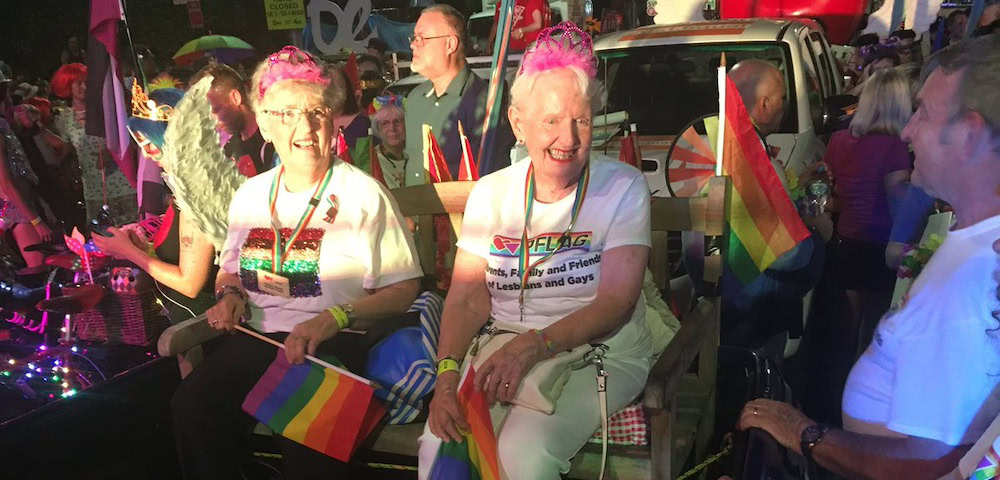
The destiny of the Alice Springs lesbian
I’m standing in the harshest environment on the planet, Attenborough announces, introducing us to yet another mysterious form of life. I’ve discovered this land, surrounded by desert and scrub, is home to a rare species that is not only surviving, but thriving.
But this is not David Attenborough, but rather Destiny Attenborough; and the rare species being examined is not some nocturnal marsupial or desert-living insect, but the lesbians of Alice Springs.
Destiny is a take-off of David, explains filmmaker Sonja Dare, on her new production Destiny In Alice.
She is a mock Aboriginal anthropologist who’s studying the lesbian phenomena in Alice Springs to help straight people identify lesbians and not to ask silly questions.
The short film forms part of the Message Sticks indigenous film festival that takes place at the Sydney Opera House from 4 to 6 May.
Destiny In Alice looks at the lives of outback lesbians, through the eyes of three local gay women -“ including Dare herself.
But although Destiny, played by Tricia Moreton-Thomas who starred in the 1998 movie Radiance, is a comic character, the film takes a look at some weighty issues.
Some of the stuff we talk about probably hasn’t been done before, Dare says, cross-cultural relationships in Australia between Aboriginal and non-indigenous women. I haven’t seen a documentary on that.
One of the ideas from the film is that women growing up are conditioned the same even though we may have different cultural backgrounds.
Our base female conditioning is to grow up, get married and have children.
When two women come together there is a huge amount of similarity, but there are so many differences culturally [between indigenous and non-indigenous women] that it sometimes can be a bit of a shock, Dare says.
One huge difference is family expectations. In indigenous cultures, if a woman’s sister has children, traditionally they are yours also, and you have to share the responsibilities of raising and guiding them.
So you might go into a relationship and it appears neither of you have children, but then there is this other responsibility to their traditional children that the non-indigenous person doesn’t have.
Dare continues, I don’t think that’s something that white Australia has any idea about.
Images of gay indigenous people are rare. According to Dare, rarer than the reality. A challenge Dare faced was Aboriginal lesbians willing to go on camera.
All of the indigenous people in the film are out in Alice Springs and to our families, Dare added.
Dare moved to Alice Springs in 1999 and although she is surprised at the statistic that the town has a higher number of lesbians, per capita, than anywhere else in the country, she agrees with the local tourism board’s assertion that it is the world’s most romantic country town.
They say Broome has amazing sunsets because of the water, but when you’ve got the sun setting over the desert it’s just spectacular.
This is Dare’s second work to be selected for the Message Sticks festival, following last year’s Cool Drink And Culture that looked at six Aboriginal women reconciling white and traditional cultures. How does it feel to have a second work selected?
It’s pretty amazing. To have the Opera House as a stage for a world premiere is pretty amazing.
Destiny In Alice will be screened at noon on Sunday 6 May at the Opera House Playhouse. Tickets are free but festival organisers recommend arriving early to guarantee seats.









